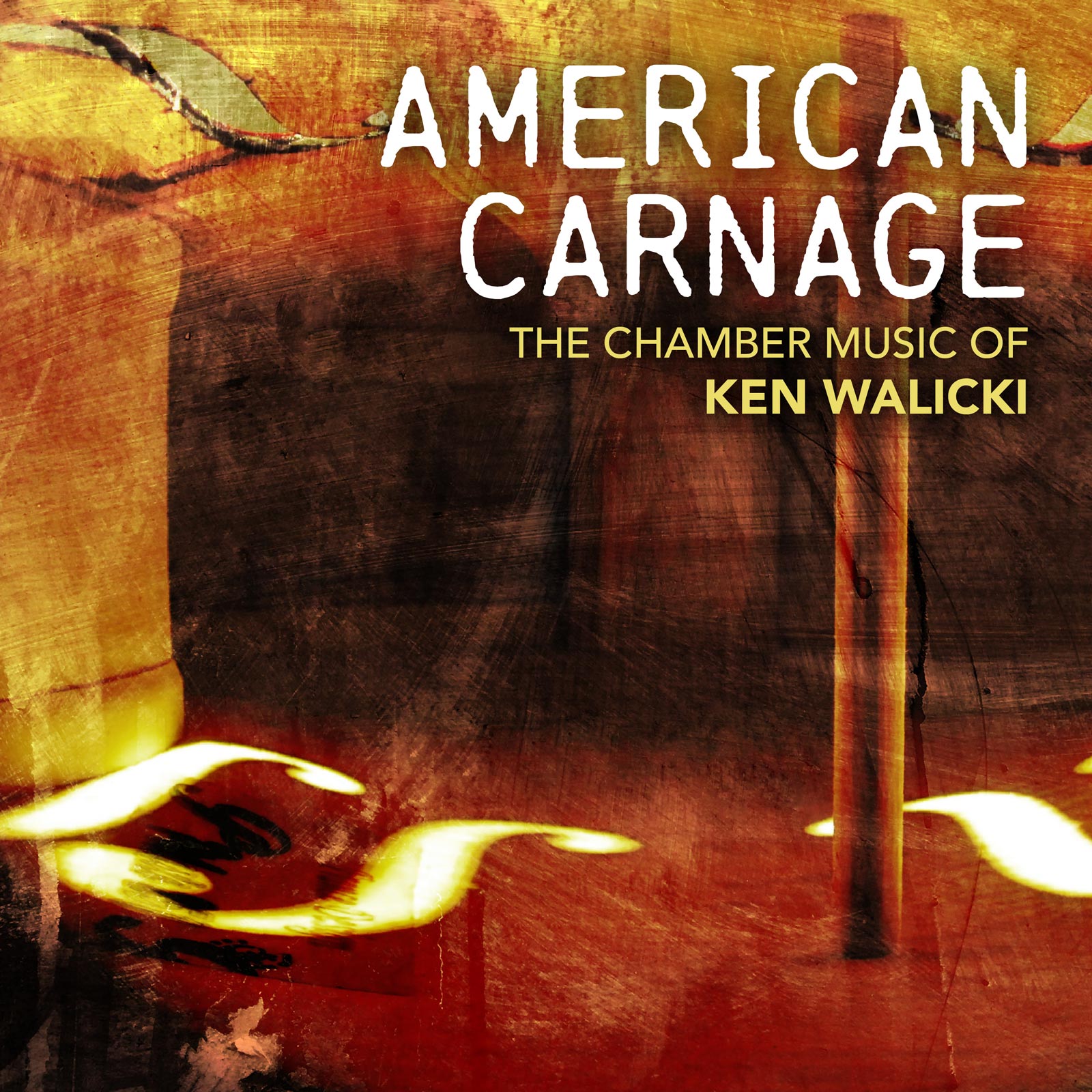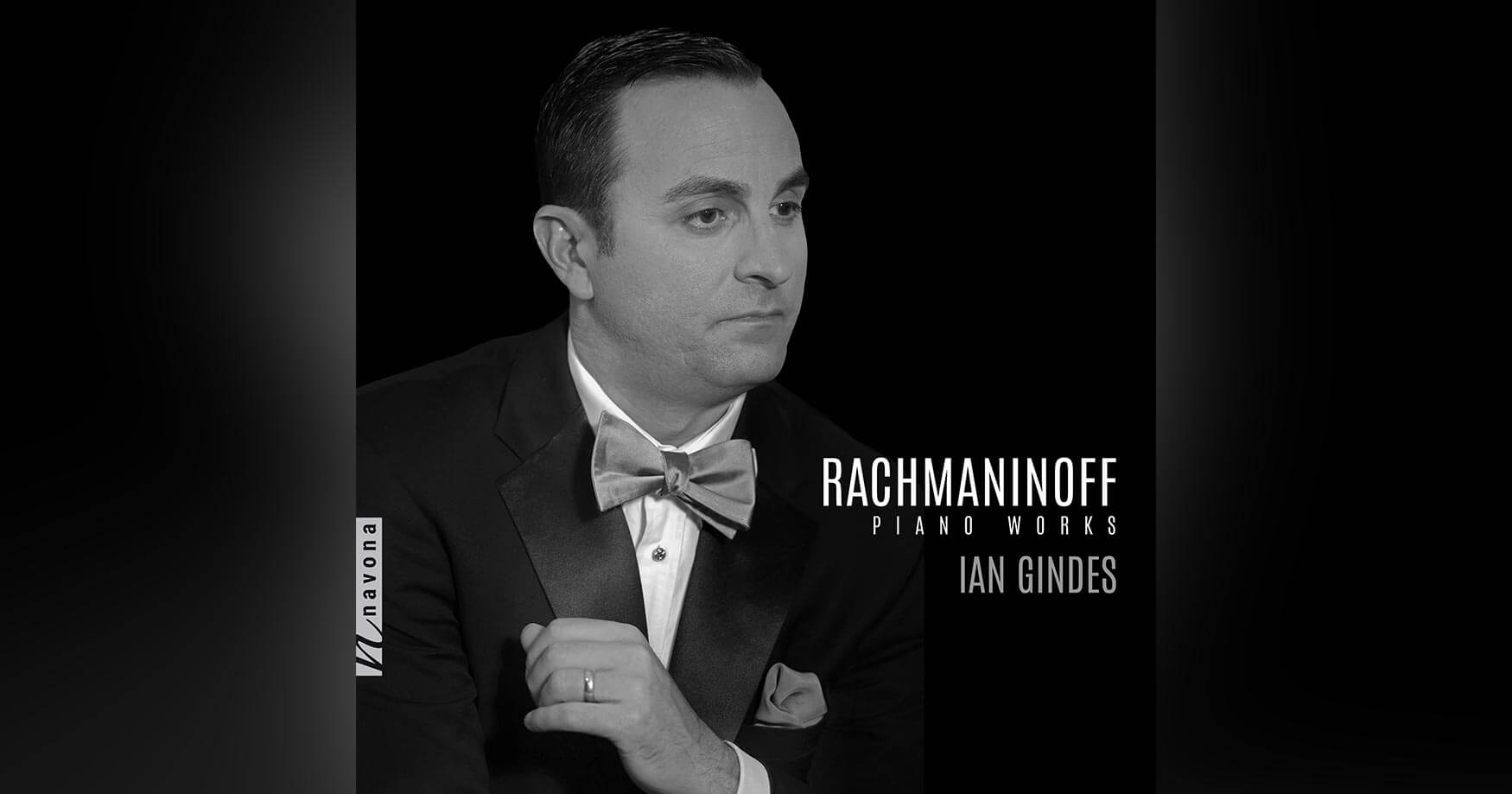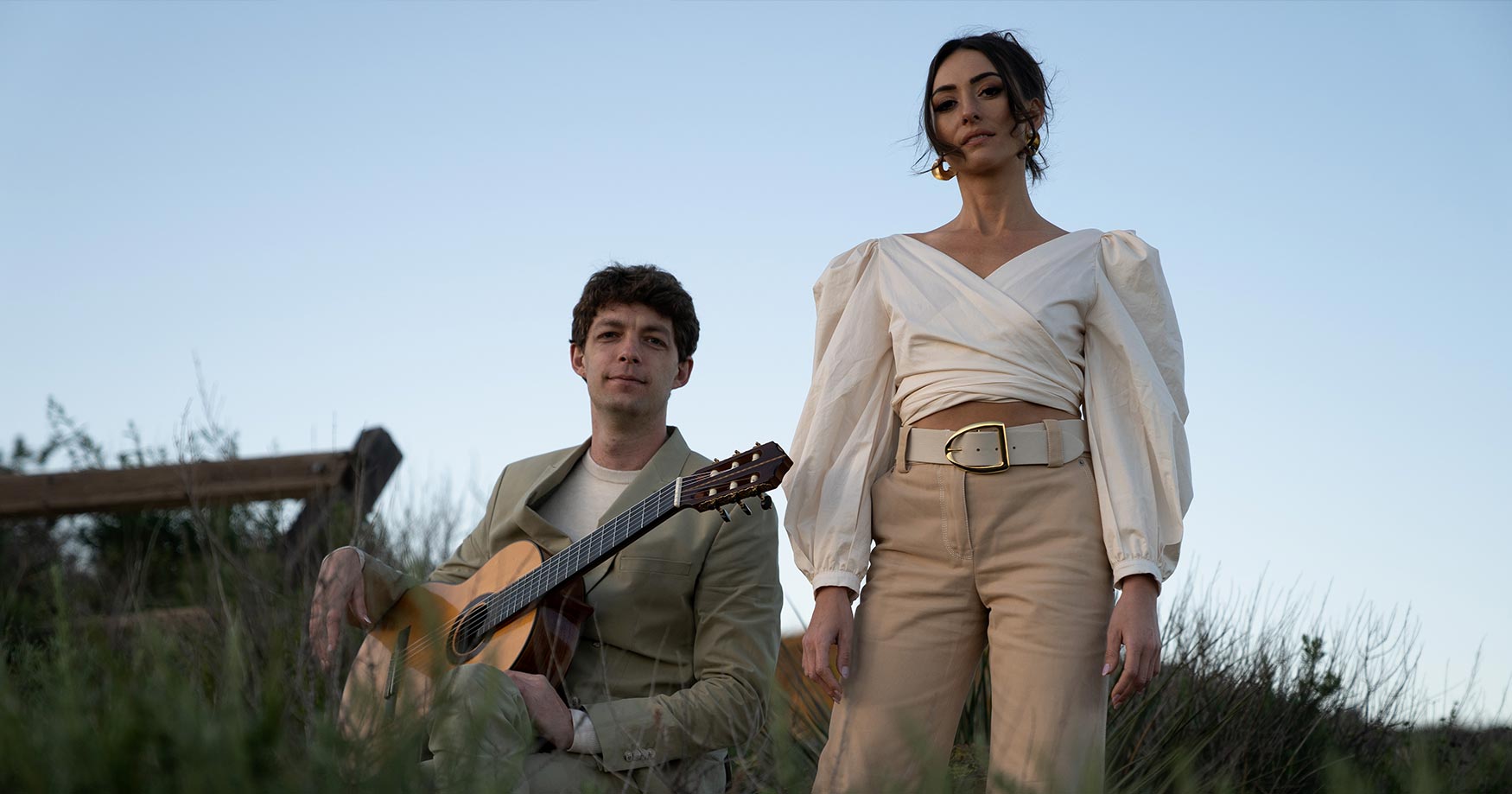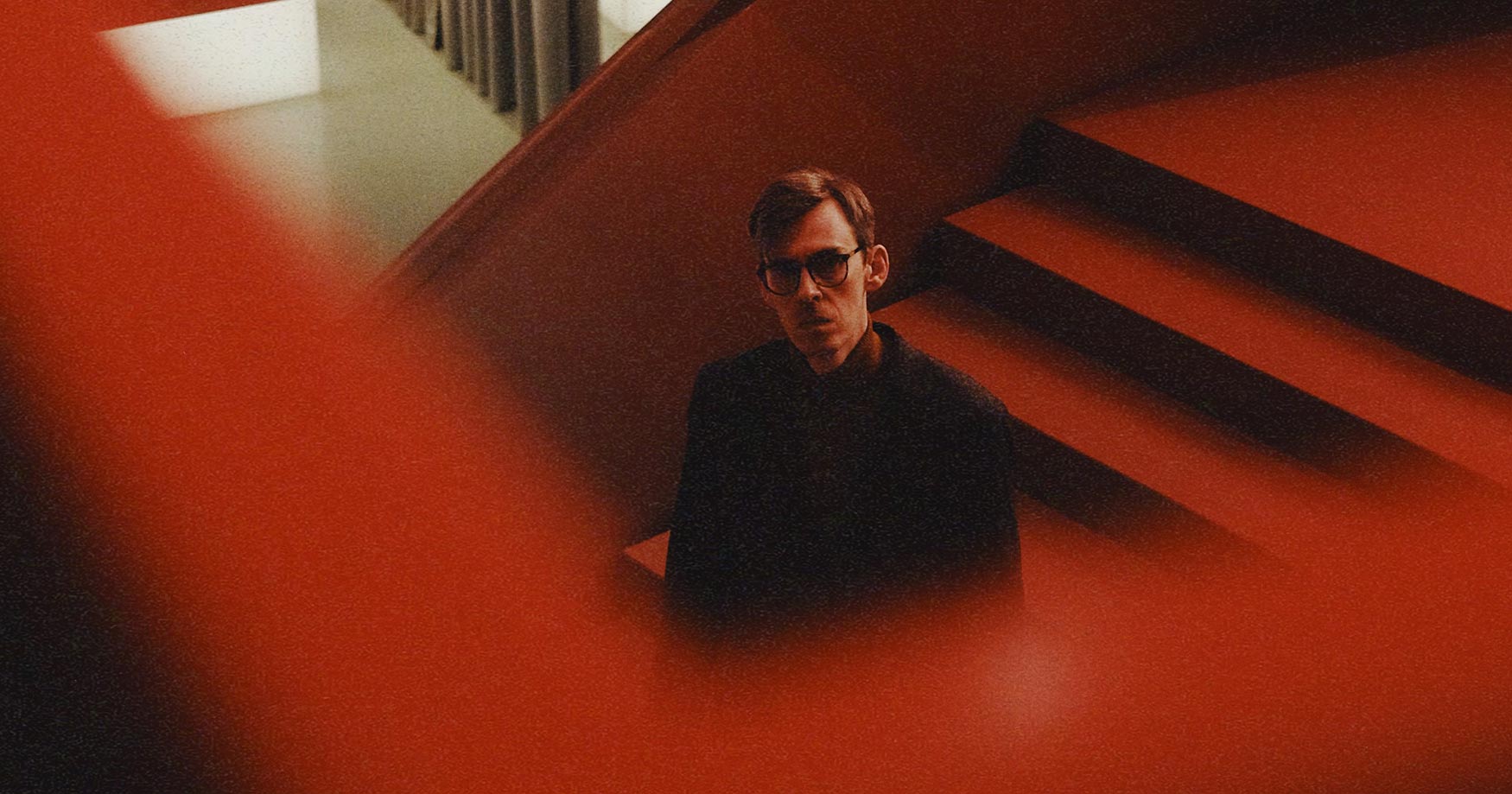AMERICAN CARNAGE is an album of chamber music by composer Ken Walicki. Well traveled and well versed in an array of different genres, Walicki shares numerous personal experiences and influences in these pieces, from blissful moments of natural beauty to musical reflections on his formative years and beyond. Masterfully performed by members of the Los Angeles-based Divan Consort, AMERICAN CARNAGE offers exuberance and zest from start to finish, a satisfying and equally authentic listening experience.
Today, Ken is our featured artist in “The Inside Story,” a blog series exploring the inner workings and personalities of our composers and performers. Read on to learn about his early aspirations to join The Beatles, and the conversation with a famous composer that inspired him to keep pushing forward…
What were your first musical experiences?
When I was 5, my parents gave in to my constantly bugging them for music lessons. Unfortunately, being from Poland, they chose the accordion for me to play. I’d love it now, but as a 5-year-old, this just wasn’t cool. After a few years, my mother noticed I was verging on hating the instrument. She asked my teacher how I was doing, he said I had talent, but accordion was not my instrument. At the same time, I was playing football in elementary school and broke my left forearm. When the cast was removed the doctor said I should squeeze a rubber ball to regain strength. I’d been bothering my parents to get me a guitar for years (I wanted to join The Beatles, obviously I was a delusional child). I spoke up and asked the doctor if playing guitar would be as good as squeezing a rubber ball; he said yes. On the way home, we picked up a cheap Tiesco guitar and an amp. It was life changing.
Tell us about your first performance.
In Detroit, when I started writing, performing, and thinking that music would be my profession; I put on concerts at a place in downtown Detroit called the Grand Circus Exchange. It doesn’t exist anymore, but it was a multi-floor art gallery and performance space. They gave opportunities to young artists, performers, and composers. The first public performances of my music and my first public performances as a guitarist were there. It was a great place that allowed for experimentation and failure. They made it fun, relaxed, and not scary!
Where and when are you at your most creative?
I have a ritual. I get up very early, go jogging, and then work in my studio. It’s quiet, dark, I’m alone, and not disturbed by all the stuff that hasn’t happened yet and will happen later in the day. Waiting until the afternoon or evening to write wouldn’t work; I’d be too exhausted.
What are your other passions besides music?
I’ve learned so much from traveling. I’ve had the opportunity to live in Germany and Istanbul, Turkey, both tie into my love of history and reading. I am passionate about reading. I have a large library, which I cherish. I enjoy learning about all that has happened throughout history. It makes me realize I’m not unique and am part of something larger than myself.
What’s the greatest performance you’ve ever seen, and what made it special?
There are five musical experiences that changed my life. The first was when I was little, I saw The Beatles on TV. It absolutely blew my mind. Never had I heard or seen anything like that. That was when I knew I wanted to be a musician.
At around the same time, I started avidly becoming a record collector. By pure chance, I bought an album by Andre Segovia. I thought it was three guitarists. It was just one: Segovia. That made me start studying the concert guitar seriously. Around the same time, an elementary school teacher took my class to the Detroit Symphony. I remember they played Prokofiev’s Alexander Nevsky Suite. It absolutely blew my mind and made me want to start writing music.
The fourth was when I was in school. Ornette Coleman and Pat Metheny had just come out with the album Song X. Ornette and Metheny were coming to Michigan State University to play. My girlfriend at the time was a jazz sax player. She wanted to go. I had no interest in Jazz, but I went because of her. The show turned out to be one of the greatest musical experiences I’ve ever had. They played for hours. Most of the crowd left, but we stayed. It completely changed my life, made me a lifelong jazz fan and bad jazz guitarist. Just great. Because of that concert, I discovered the Art Ensemble of Chicago, The Leaders, Eric Dolphy, Mingus, etc. It just opened my ears completely up!
When I moved to New York City, Led Zeppelin came out with a boxed CD collection of all their albums. I was pretty poor at the time, but I saved up to get it. I had listened to Zeppelin when I was a kid and thought getting their CDs would be fun too. I hadn’t heard from them since before I went to music school. Well, my ears had changed because of the musical experiences I had had. Zeppelin was a revelation. I understood where my love of polyrhythms and microtonality came from. To this day, I admire and listen to them all the time.
What musical mentor had the greatest impact on your artistic journey? Is there any wisdom they’ve imparted onto you that still resonates today?
Probably Karlheinz Stockhausen. I learned that whatever musical ideas you dreamt could be attained if you worked hard enough. While studying with him in Germany, I also came to realize what I didn’t want to do. I had been infatuated with the Avant-Garde at that point in my life. After spending a few years with Stockhausen, I realized my path did not go in that direction.
Once I met John Cage. It was at a period in my life where I was down about my career and life. He told me to keep going because I was alive, worth something, and I’d be heartbroken if I left music. It was a short, less than five-minute conversation, probably meaningless to him, but it meant the world to me.
The mentor who taught me how music works and gave me the technical fundamentals of writing music was Jere Hutcheson at Michigan State University. He was my dissertation director and taught me a lot.
Explore Ken Walicki’s Latest Release
AMERICAN CARNAGE
AMERICAN CARNAGE is available now from Ravello Records. Click here to visit the catalog page and explore this album.
The views and opinions expressed in this post are those of the artist and do not necessarily represent or reflect the views and opinions held by PARMA Recordings LLC and its label imprints, subsidiaries, and affiliates.




